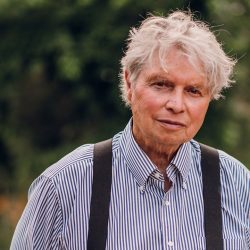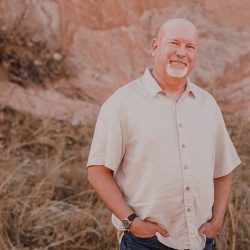Danielle Evans

Danielle Evans is no stranger to praise. During her 33 years, the UW assistant professor of creative writing has graduated from the Iowa Writers’ Workshop, been featured in The Paris Review, and published a wildly successful 2010 short story collection about race and coming of age in 21st-century America, Before You Suffocate Your Own Fool Self. The northern Virginia native is finishing her debut novel.
Washington, DC, and northern Virginia play an important role in your writing. What makes this region unique?
There’s a certain kind of weirdness to being in a place that is in constant flux. People move in and out of that whole area, and even if they stayed there a long time, [they] will say they might leave. That transience is interesting to write about. I have learned to be interested in movement. A lot of characters that I write, they’re not putting down roots.
You also write about millennials. What are some of the main struggles they face?
There is something happening generationally where a lot of the things sold to us as “adulthood” don’t exist in the way they did. Knowing when you have settled [down] isn’t true in the way that it would be if you expected to buy a house, get married and have kids, or have the same job for 20 years. We don’t believe that there is necessarily a future out there that — if we did the right things — we could get.
How do you conceptualize race in your work?
There are stories where the characters’ racial identity is really central — and part of the story is a negotiation of that — and there are stories where the characters are given a racial identity but the conflict is something else. I think both of those kinds of stories are important. One of the things about racial identity is that it, for a lot of people, includes a constant awareness that, at any moment, what’s not about race could become about race. That anxiety about when race can come into your life is part of identity. It’s part of how people move through the world, even on days that are not about conflicts that explicitly involve race and racism.
Why did you come to teach at the UW?
What brought me here was feeling how special this department was, and seeing what the students coming into this program were doing. There are a lot of great people here. I wanted to be in a space where I could help students [become] full-time writers and where we could recruit and compete for the top applicants.
Interview conducted, edited, and condensed by Riley Vetterkind x’17



Comments
No comments posted yet.